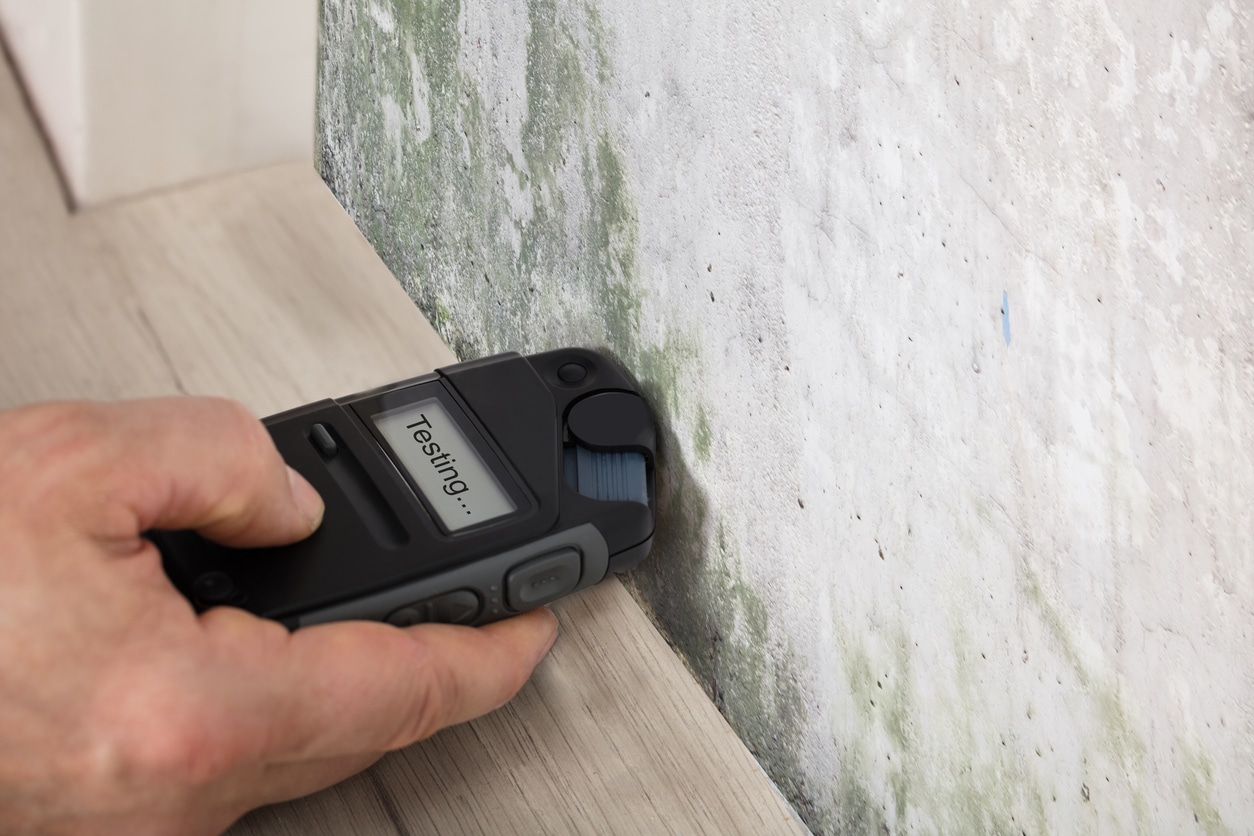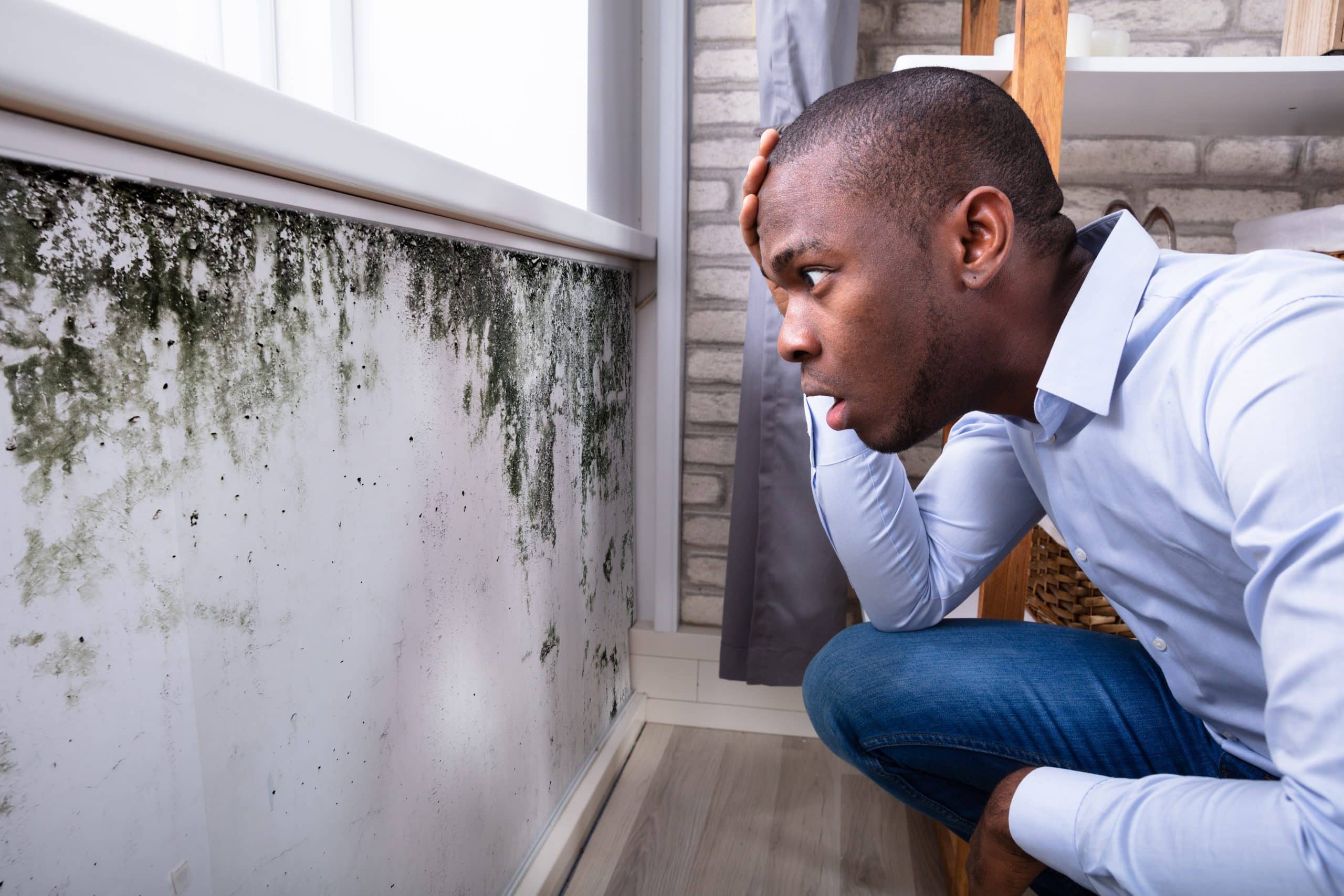Mold growth is not just a nuisance; it’s a serious issue that can impact your…

Health Risks Associated with 3 Types of Mold Damage
Mold growth is a major issue that property owners often face, especially in areas prone to moisture. Mold can spread rapidly and cause significant damage to both the structure and the health of those living or working within a property. There are three primary types of mold damage: allergenic, pathogenic, and toxigenic. Early mold testing, inspection, and proper remediation are crucial steps to safeguard your health and property.
In this post, we’ll explore the different types of mold damage. By understanding the types of mold and their dangers, you can take proactive steps to prevent further damage and protect your home or business. Let’s get into it.
Primary Types of Mold Damage
Allergenic Mold Damage
Allergenic molds are some of the most prevalent in homes and businesses, and they can greatly impact the air quality in your space. These molds primarily affect people with asthma, allergies, or other respiratory sensitivities, making day-to-day life uncomfortable.
When inhaled, mold spores can trigger allergy-like symptoms, such as sneezing, coughing, itchy eyes, and even skin rashes. These symptoms can be more severe and long-lasting for those with pre-existing respiratory conditions.
Like most other molds, allergenic mold thrives in damp, humid environments. Leaks, floods, or areas with poor ventilation are prime locations for their growth. Mold inspections are key to catching allergenic mold growth early before it spreads further and causes more serious problems.
Common Allergenic Molds
Several types of molds fall under the allergenic category, but some of the most common ones include:
- Aspergillus: Found in both outdoor and indoor environments, this mold can cause mild to severe allergic reactions.
- Cladosporium: This mold typically grows on fabrics, wood, and damp surfaces and is known for triggering respiratory issues.
- Penicillium: Commonly found in decaying food, Penicillium can also grow on building materials and trigger allergies.
Routine mold inspections can identify these common allergenic molds before they escalate into larger problems that require extensive professional help.
Pathogenic Mold Damage
While allergenic molds primarily cause discomfort, pathogenic molds can pose much more serious health threats, especially for individuals with weakened immune systems. These molds are capable of causing infections in both healthy individuals and those with underlying health conditions. Pathogenic molds thrive in the same damp environments as other mold types, but the health risks they bring can be far more severe.
For people with compromised immune systems, such as infants, the elderly, or individuals undergoing medical treatments, exposure to pathogenic molds can lead to significant infections. These infections may begin in the lungs or sinuses and spread to other parts of the body if not treated promptly. The symptoms may vary but can include coughing, fever, and even chronic fatigue.
Serious Health Effects of Pathogenic Molds
Pathogenic molds can cause a variety of dangerous health effects, especially when they go unnoticed for an extended period. Some of the more serious health effects include:
- Fungal infections: People with compromised immune systems are more likely to develop infections caused by pathogenic molds such as Cryptococcus.
- Respiratory diseases: Exposure to pathogenic molds can lead to chronic lung conditions like bronchitis or pneumonia, particularly in those with pre-existing respiratory issues.
- Fatigue and malaise: Prolonged exposure to these molds can cause extreme tiredness and a general feeling of being unwell, often impacting daily life.
Toxigenic Mold Damage
Toxigenic molds are the most dangerous of the three types, as they produce harmful toxins called mycotoxins, which can lead to severe health issues. Exposure to these molds can cause both short-term and long-term damage to your health, affecting not just the respiratory system but also other bodily functions. Symptoms can range from irritation of the skin and eyes to more severe effects like neurological issues and immune system suppression.
This type of mold thrives in areas with persistent moisture and can spread quickly when left unchecked. It’s essential to act fast with mold testing and inspections, especially in homes or buildings that have experienced water damage. Mold remediation becomes crucial when toxigenic molds are involved, as these toxins are harmful to everyone, not just those with pre-existing conditions.
Examples of Toxigenic Molds
Toxigenic molds are notorious for the severity of their health impacts. Here are some common examples:
- Stachybotrys (Black Mold): Often referred to as “black mold,” Stachybotrys produces highly toxic mycotoxins that can cause chronic respiratory issues and neurological symptoms.
- Fusarium: Found in water-damaged environments, Fusarium is another mold known for producing dangerous mycotoxins that can affect the respiratory system and lead to immune suppression.
- Aspergillus: Though some species of Aspergillus are allergenic, certain strains can produce toxigenic compounds that lead to severe lung infections.
Health Risks of Mold Damage
Mold damage can lead to a wide range of health risks, and these risks intensify depending on the type of mold present. Respiratory problems are the most common issues, including symptoms like coughing, sneezing, and wheezing.
Long-term mold exposure can result in chronic respiratory conditions such as asthma or bronchitis, especially if the mold is pathogenic or toxigenic. In more severe cases, mold exposure can cause neurological symptoms like headaches, memory loss, and even depression.
For individuals with compromised immune systems, infants, or the elderly, mold poses even greater dangers. Exposure to allergenic or toxigenic molds can result in severe allergic reactions or infections, and the potential for illness increases significantly when the mold is not addressed quickly.
Protect Your Health with Mold Testing & Remediation
Dealing with mold damage is not just about protecting your property but about safeguarding your health. Whether the mold is allergenic, pathogenic, or toxigenic, the risks of exposure can range from minor irritation and inconvenience to serious illnesses and chronic conditions. That’s why mold testing, mold inspection, and remediation services are essential steps in maintaining a healthy living environment.
If you suspect mold in your home or business, act quickly. Early action helps prevent long-term health issues and costly repairs. Professional mold remediation ensures all traces of harmful mold are removed, allowing you to breathe easier and live comfortably.
Leading Mold Testing & Remediation Services in Colorado
At Property Craft, we specialize in comprehensive mold testing, inspection, and remediation services in Colorado. Whether you’re dealing with visible mold or hidden damage, our team is ready to help you restore the safety and integrity of your property. Contact us here or call 719-299-4508 today to schedule an inspection and take action to ensure your home or business stays mold-free.


